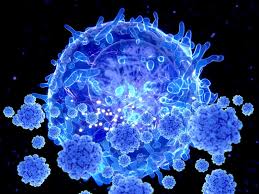By attacking the virus from many angles, the body has the tools to potentially recognise different SARS-CoV-2 variants.
This is even as the professor of virology, Oyewale Tomori, said using T cells in the fight against COVID-19 has always been part of the plans but there’s no evidence yet to show that it can fight against new variants of the virus.
The study, published online in open-access journal, Cell Report Medicine, was led by an immunologist at the Centre for Infectious Disease and Vaccine Research, La Jolla Institute for Immunology, Alessandro Sette.
The researchers examined T cells from 100 people who had recovered from SARS-CoV-2 infection. They then took a close look at the genetic sequence of the virus to separate the potential epitopes from the epitopes that these T cells would actually recognise.
T cell is a type of white blood cell that is of key importance to the immune system and is at the core of adaptive immunity, the system that tailors the body’s immune response to specific pathogens. The T cells are like soldiers who search out and destroy the targeted invaders.
According to the scientists, the immune system produces T cells that can target viruses alongside antibodies.
The study states that, “Finally, the definition of the epitopes recognised in SARS-CoV-2 infection is relevant in the context of the debate on the potential influence of SARS-CoV-2 cross-reactivity with endemic common cold coronaviruses.
Several studies have defined the repertoire of SARS-CoV-2 epitopes recognised in unexposed individuals, but the correspondence between that repertoire and the epitope repertoire elicited by SARS-CoV-2 infection has not been evaluated.”
Coronavirus vaccine development has largely focused on antibodies, and for good reason, Sette said; noting that antibodies — particularly those that bind to crucial viral proteins and block infection — can hold the key to ‘sterilising immunity’, which not only reduces the severity of an illness but prevents infection altogether.
That level of protection is considered the gold standard, but typically it requires large numbers of antibodies, says Sette. “That is great if that can be achieved, but it’s not necessarily always the case,” he says.
In response, Prof. Tomori said using T cells in the fight against COVID-19 has always been part of the plans but there’s no evidence yet to show that it can fight against new variants of the virus.
“The immunity is both B cells and T cells but we don’t know yet if the T cells are going to help fight against new variants,” he said.
Tomori, who is the Chairman, Expert Review Committee on COVID-19, added that antibodies and T cells work together.
“The antibodies and T cells work together. Antibodies mob up the virus and T cells eat up the debris.
“Antibodies will prevent the virus from spreading within the body but it does not stop the virus from entering the body.
“Antibodies will help in such that if you get the infection, you’ll not get the disease if your antibodies are strong enough.
“So, both the B and T cells work together, that is what makes total immunity,” the virologist told PUNCH HealthWise.
source: Punch

 A new study suggests that T cells try to fight SARS-CoV-2 by targeting a broad range of sites on the virus beyond the key sites on the virus’s spike protein. T cells are a type of white blood cell known as a lymphocyte.
A new study suggests that T cells try to fight SARS-CoV-2 by targeting a broad range of sites on the virus beyond the key sites on the virus’s spike protein. T cells are a type of white blood cell known as a lymphocyte.




